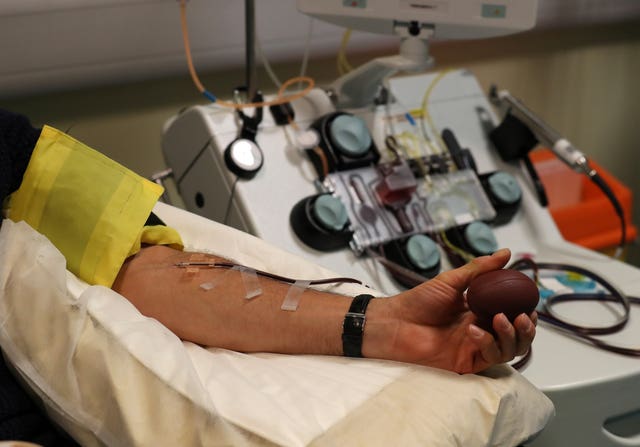Hundreds of operations and appointments cancelled in week after NHS cyber attack
Trust chiefs said they are ‘working to reschedule as quickly as possible’.

The scale of the disruption caused by a cyber attack on pathology services provider Synnovis has been revealed.
Hundreds of planned operations and outpatient appointments were forced to be rearranged at the two London NHS trusts impacted most, NHS England London said.
Officials also warned disruption is expected to be felt “for some time”.
Synnovis was the victim of a ransomware attack, understood to be carried out by Russian group Qilin, on June 3.
It left its ability to process and report blood tests severely reduced.
At the time, health service leaders said there had been a “significant impact” at King’s College Hospital, Guy’s and St Thomas’ – including the Royal Brompton and the Evelina London Children’s Hospital – and GP services in south-east London.
Between June 3-9, the first week after the attack, more than 800 planned operations and 700 outpatient appointments were re-arranged at the two trusts most affected – King’s College Hospital NHS Foundation Trust and Guy’s and St Thomas’ NHS Foundation Trust.
In a joint statement, Professor Ian Abbs, chief executive of Guy’s and St Thomas’ NHS Foundation Trust, and Professor Clive Kay, chief executive of King’s College Hospital NHS Foundation Trust, said: “The cyber attack has had a significant impact on our services, and this is likely to remain the case for some time yet.
“Despite the superb efforts of our staff and support from partners across London to continue caring for patients, we have had to postpone a number of operations and appointments which we are working to reschedule as quickly as possible.
“We fully recognise the distress that any delays in care can cause for our patients and their families, and we are very sorry for this. In the meantime, we would urge patients to attend for their appointments as planned unless they are contacted.”
Dr Chris Streather, medical director for NHS London, added: “Having treatment postponed is distressing for patients and their families, and we apologise to all those who have been impacted, and staff will work hard to re-arrange appointments and treatments as quickly as possible.
“While staff are working round the clock to mitigate the impact and Synnovis is working to recover its IT system, we expect disruption to be felt for some time.”
On Monday, an “urgent” national blood drive was launched across England for people with “universal” blood to donate.
People with type O blood are being urged to come forward as their blood is safe to use for the majority of patients.

More units of these types of blood than usual will be required “over the coming weeks” to keep services running safely for local patients, NHS Blood and Transplant (NHSBT) said.
Both O positive and O negative blood donors are being urged to book appointments in one of the 25 NHS Blood Donor Centres in England to boost stocks.
Jacqueline Totterdell, group chief executive at St George’s, Epsom and St Helier Hospitals and Health Group, said: “This is where the NHS comes into its own and it’s only with the support of colleagues from other parts of the NHS who are supporting St George’s that we are able to step up and support others.
“We’ve seen some of the sickest and most complex patients at St George’s – following the cyber attack – including patients needing major life-changing surgery.
“So my thanks to the many doctors, nurses and other colleagues who are working hard to care for additional patients so there are no further delays to their care.”





